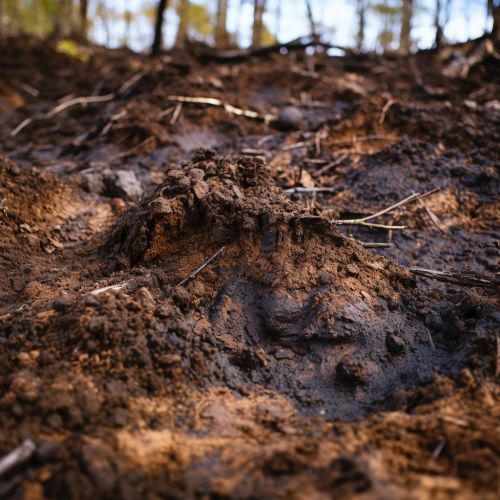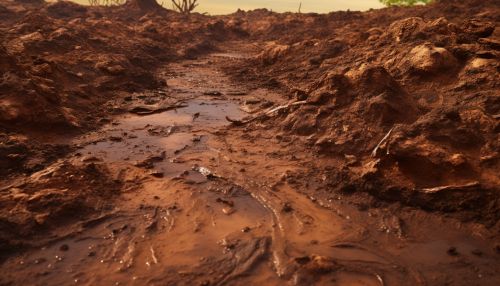Soil pollution
Introduction
Soil pollution, also known as soil contamination, refers to the presence of toxic substances in soil at levels high enough to pose a risk to ecosystems and human health. This form of pollution is often the result of human activities such as industrial processes, agricultural practices, waste disposal, and accidental spills or leaks of hazardous substances.
Causes of Soil Pollution
There are numerous sources of soil pollution, which can be broadly classified into two categories: natural and anthropogenic (human-made).
Natural Sources
Natural sources of soil pollution include volcanic eruptions, forest fires, and mineral leaching. Volcanic eruptions, for instance, release a variety of toxic substances such as heavy metals and radionuclides into the soil.
Anthropogenic Sources
Human activities are the primary cause of soil pollution. These activities include:
- Industrial Processes: Many industrial processes release pollutants into the environment, including the soil. These pollutants may include heavy metals, organic compounds, and radioactive materials.
- Agricultural Practices: The use of chemical fertilizers, pesticides, and herbicides in agriculture can lead to soil pollution. These chemicals can accumulate in the soil, affecting soil fertility and potentially entering the food chain.
- Waste Disposal: Improper disposal of waste, particularly hazardous waste, can result in soil pollution. This includes the dumping of industrial waste, household garbage, and untreated sewage.
- Accidental Spills or Leaks: Accidental spills or leaks of hazardous substances, such as oil or chemicals, can contaminate the soil.


Effects of Soil Pollution
Soil pollution has a wide range of effects, impacting the environment, human health, and the economy.
Environmental Impact
Soil pollution can have severe effects on the environment. It can lead to a loss of biodiversity, as certain species may not be able to survive in polluted soil. It can also disrupt ecosystems, as the contamination can affect the food chain and disrupt the balance of organisms in an ecosystem.
Human Health Impact
Exposure to soil pollutants can have serious health effects in humans. These can range from skin irritations and nausea to more serious conditions like cancer and organ damage, depending on the type and level of exposure.
Economic Impact
Soil pollution can also have economic consequences. It can reduce agricultural productivity, leading to food shortages and increased food prices. Additionally, the cost of cleaning up polluted soil can be significant.
Prevention and Remediation of Soil Pollution
Preventing soil pollution is crucial, as remediation can be costly and time-consuming. Prevention strategies include proper waste management, reducing the use of chemical fertilizers and pesticides, and implementing regulations to control industrial emissions.
When soil pollution does occur, remediation methods can be used to clean up the contaminated soil. These methods can be physical, chemical, or biological in nature, and the choice of method depends on the type and extent of the pollution.
Conclusion
Soil pollution is a serious environmental issue that requires concerted efforts to prevent and remediate. It is crucial for the health of our ecosystems, our own health, and our economy. By understanding the causes and effects of soil pollution, we can take steps to mitigate this problem and work towards a more sustainable future.
